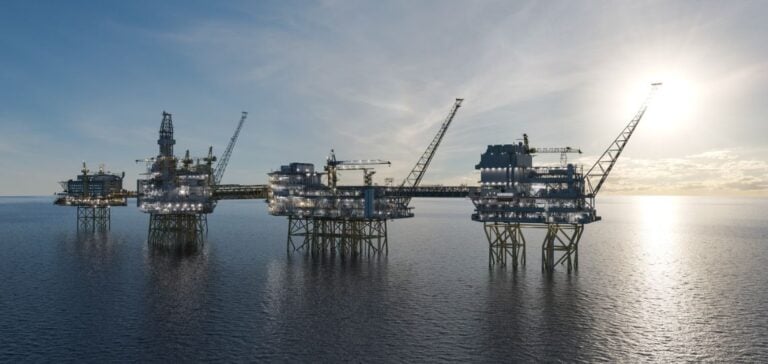Norway, Europe’s leading oil producer, finds itself in a legal tug-of-war over the development of three oil fields: Yggdrasil, Tyrving and Breidablikk.
These projects, supported by the Ministry of Energy, were blocked after a court ruling in January invalidated the operating permits for insufficient assessment of climate impacts, in particular “scope 3” emissions, which include emissions generated by the use of extracted oil and gas. Greenpeace and Nature and Youth, who initiated the lawsuit, believe that these assessments are crucial if Norway is to meet its climate commitments.
The Norwegian government has appealed this decision and asked the Court of Appeal to lift the injunctions blocking development of the fields.
According to Goeran Oesterman Thengs, a lawyer representing the state, the necessary conditions for an injunction have not been met.
He argues that the potential economic losses for the state and the fields’ operators, Aker BP and Equinor, outweigh the environmental benefits put forward by environmental organizations.
Economic implications of injunctions
The field operators, Aker BP and Equinor, have already invested heavily in these projects.
Current and planned investments in the three fields are estimated at around NOK 140 million ($13 million).
If the injunctions are upheld, the direct financial losses could be considerable for the companies involved, also impacting the Norwegian state’s hydrocarbon revenues.
The authorities argue that the continued development of the Yggdrasil, Tyrving and Breidablikk fields is essential not only for the national economy, but also to guarantee regional energy security in a context of global energy transition.
The Breidablikk field went into production in October 2023, and Tyrving recently followed suit, increasing the pressure for a swift resolution to the dispute.
The arguments of environmental organizations
Environmental groups, led by Greenpeace Norway, insist that continued development of new oil fields undermines global efforts to reduce CO2 emissions and runs counter to Norway’s climate goals.
They claim that each new oil project increases the carbon footprint and worsens the climate crisis.
“Continued production on these fields shows why injunctions are needed to prevent irreparable damage,” says Frode Pleym, head of Greenpeace Norway.
For environmentalists, the court rulings must serve as a counterweight to national energy policies which, despite promises of carbon neutrality by 2050, continue to rely heavily on hydrocarbon extraction.
Yggdrasil, the third field in dispute, is scheduled to start production in 2027, but remains subject to court rulings that could prohibit its development.
Towards a Balance between Economic Growth and Climate Responsibility
The situation highlights the dilemma faced by oil-exporting countries like Norway: striking a balance between maintaining their economic position and global climate responsibility.
The government maintains that its actions are in line with the commitments of the Paris Agreement, and stresses that the country is striving to reduce its domestic emissions, while continuing to exploit its oil and gas resources.
Energy industry observers will be closely following the forthcoming legal developments, as they could not only influence Norway’s energy policy, but also send a clear message to other producing nations about the growing importance of climate considerations in the development of natural resources.





















